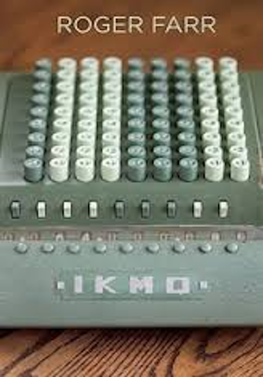A REVIEW OF ROGER FARR'S
IKMQ
BY ANDREW MCEWAN
The Rusty Toque | Reviews | Issue 5 | November 15, 2013
ANDREW MCEWAN is
the author of the book repeater, a finalist for the 2013 Gerald Lampert
Award, and the chapbooks LINE STARTS HERE and Input / Output. His work
has been awarded the E.J. Pratt Poetry Medal. He is working on his M.A.
at the University of British Columbia, where he is an organizer for the
Play Cthonics reading series.


